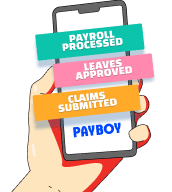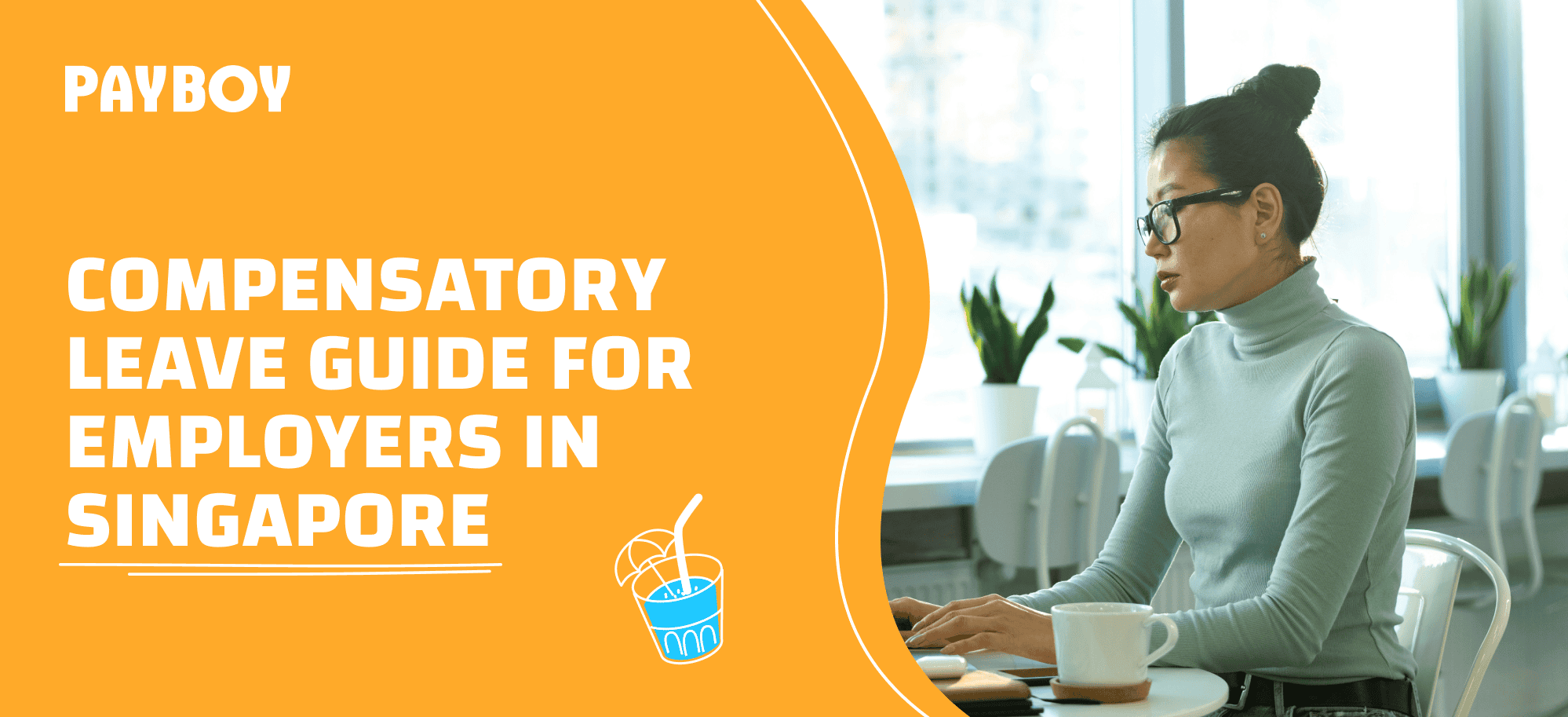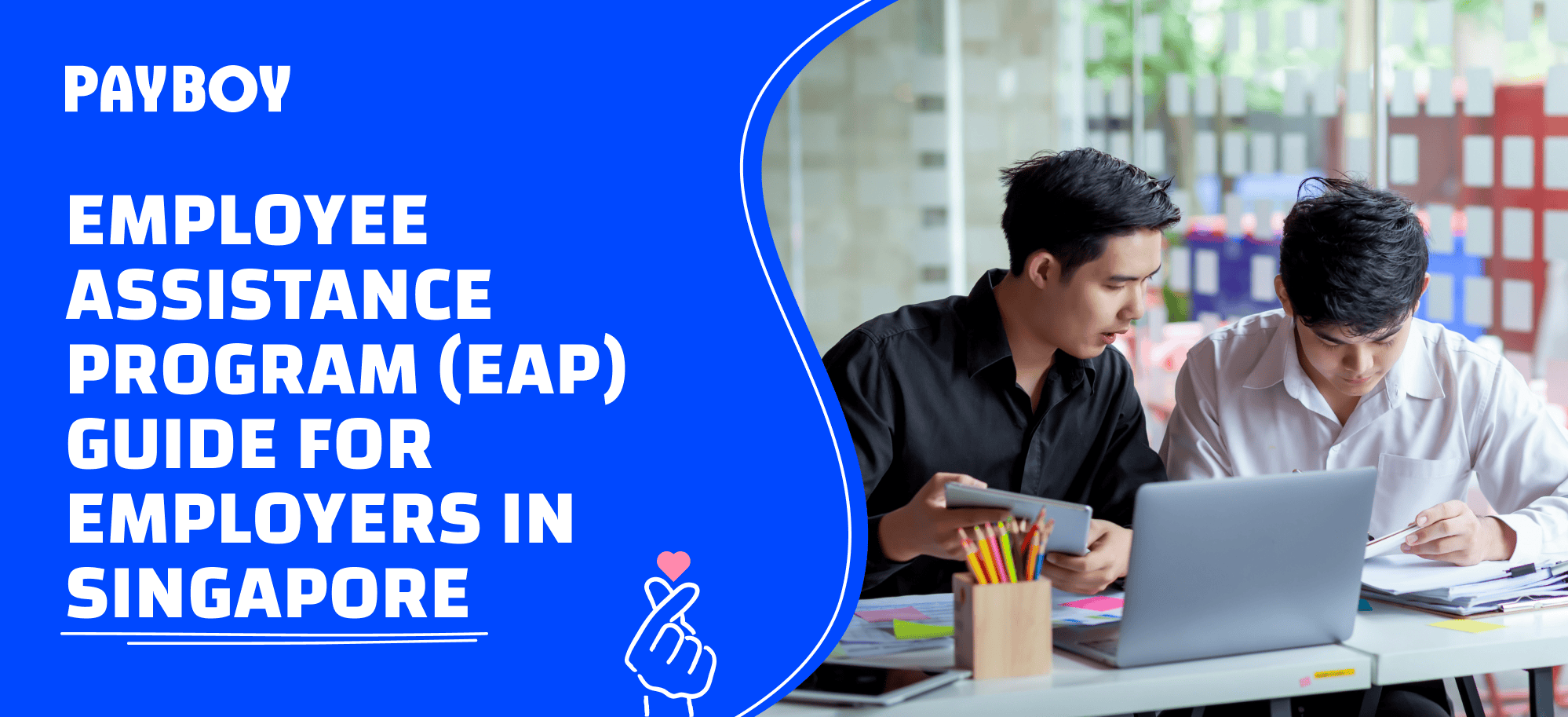As an employer, understanding compensatory leave is paramount, especially when your employees put in extra hours during overtime, work on rest days, or sacrifice their holidays for the job. Throughout this guide, we'll cover a range of topics, including eligibility criteria, types of compensatory leave, and the crucial components to include in your organisation's leave policy. By the end, you'll have a comprehensive understanding of compensatory leave and the tools to implement it effectively in your workplace. Let’s dive in!
What is compensatory leave?
Compensatory leave, often known as “time off-in-lieu” or "comp time," refers to the additional time off granted to employees in lieu of overtime pay. This leave is offered to compensate employees for the extra hours they have worked beyond their regular working hours. The primary objective is to reward employees for their dedication and hard work while maintaining a work-life balance.
What are the types of compensatory leave?
There are various types of compensatory leave that employers can offer to their employees, depending on the nature of the overtime work. Some common types include:
- Overtime compensatory leave
This type of compensatory leave is granted to employees who have worked beyond their regular working hours, typically in the form of overtime. It serves as a way to compensate employees for the additional time and effort they put in beyond their standard working hours.
- Public holiday compensatory leave
Employees who are required to work on public holidays are granted public holiday compensatory leave. It aims to compensate employees for sacrificing their public holiday and encourage work-life balance by providing an opportunity for them to take time off on another day.
- Rest day compensatory leave
This type of compensatory leave is granted to employees who are required to work on their scheduled rest days, often weekends. It compensates employees for working on their rest days and ensures that they have adequate rest to maintain their well-being and productivity.
Who is eligible for compensatory leave?
Compensatory leave is primarily for employees not covered under the Part IV of Employment Act and depends on a mutual agreement between the employer and employee. Policies for compensatory leave vary depending on whether an employee works on public holidays, rest days, or overtime.
In contrast, employees covered under Part IV of Employment Employment Act are entitled to additional pay rather than compensatory leave for work performed beyond contractual or legal hours, including public holidays and rest days. This specifically applies to:
- Employees governed by Part IV provisions (i.e., non-managerial and non-executive roles),
- Workmen (doing manual labour) with a monthly basic salary of S$4,500 or less.
- Non-workmen with a monthly basic salary of S$2,600 or less
For employees who are covered under Part IV of Employment Act, can I give compensatory leave for overtime instead of overtime pay?
If your employees are covered under Part IV of the Employment Act, you are not allowed to replace overtime pay with compensatory leave. Overtime pay should be provided at a minimum rate of 1.5 times the regular hourly wage.
Tip: Looking for information on overtime pay? You've come to the right place! Our overtime pay guide for employers in Singapore provides you with everything you need to know about overtime pay in Singapore, including how it's calculated and when it's payable.
For employees who are covered under Part IV of Employment Act, can I give compensatory leave for rest days instead of rest day pay?
If your employees are covered under Part IV of the Employment Act, you cannot offer compensatory leave to replace the rest day pay when they’re required to work on a rest day. Rest day pay is designed to provide additional compensation for the extra hours worked on a rest day.
Tip: Implementing rest days showcases your commitment to the health and well-being of your workforce. Our rest day pay guide for employers in Singapore will answer all of your rest day-related questions, including their significance, legal implications, and detailed calculations.
For employees who are covered under Part IV of Employment Act, can I give compensatory leave for public holidays instead of public holiday pay?
By default, if an employee works on a public holiday, they are entitled to an additional day's pay. However, by mutual agreement, you can offer a public holiday in lieu of additional pay.
Tip: Head over to the public holiday pay guide for employers in Singapore to gain more clarity and confidence in managing public holiday pay like a seasoned HR professional.
For employees who are not covered under Part IV of Employment Act, do I have to provide compensatory leave for public holiday?
If your employees are not covered under Part IV of the Employment Act, you have the flexibility to offer compensatory leave in lieu of working on a public holiday. The duration of this time off should be mutually agreed upon between you and your employee. If there is no mutual agreement on the duration of time off in lieu, you can decide on one of the following:
- Pay an extra day’s salary at the basic rate of pay for one day’s work.
- For hours worked up to 4 hours on a holiday, grant 4 hours of compensatory time off on a regular working day.
- For hours worked exceeding 4 hours on a holiday, offer a full day of compensatory time off on a regular working day.
For employees who are not covered by Part IV of the Employment Act, do I have to provide overtime compensatory leave?
If your employees are not covered under Part IV of the Employment Act, your employee’s entitlement to compensatory leave will be determined by the terms outlined in the employment contract.
What should I include in the leave policy for compensatory leave?
For employees who are not covered under Part IV, the entitlements would depend on what is in your employment contract. When drafting a leave policy that incorporates compensatory leave, consider these essential components to ensure clarity, consistency, and fairness:
- Eligibility criteria: Specify which employees are eligible for compensatory leave. This could include full-time employees, part-time employees, or specific roles within the organisation.
- Accrual rate: Determine how compensatory leave is earned. This could be based on overtime hours worked, weekend work, or other specific circumstances outlined in the policy.
- Calculation method: Clearly outline how compensatory leave is calculated. For example, you may specify that employees earn one hour of compensatory leave for every hour of overtime worked.
- Accrual limits: Set limits on the maximum amount of compensatory leave that employees can accrue. This prevents employees from accumulating excessive amounts of leave that may disrupt workflow.
- Usage guidelines: Explain when and how compensatory leave can be used. This could include requiring advance notice, obtaining supervisor approval, or imposing restrictions during busy periods.
- Carryover and expiry: Clarify whether compensatory leave can be carried over from one year to the next and, if so, any limits on carryover. Additionally, specify if there's an expiration date for unused compensatory leave.
Can an employee request compensatory leave?
Employees have the right to request compensatory leave by following the company's procedures. This typically involves submitting a formal request through the designated HR software, like Payboy's Leave Management module, or a formal email to their immediate managers or the HR department for leave approval.
It's advisable for employees to provide ample notice when requesting compensatory leave. This allows managers and HR professionals sufficient time to review the request, assess its impact on the team's workload, and make necessary arrangements to accommodate the employee's absence.
Are Singapore Permanent Residents (PR) or foreigners eligible for compensatory leave?
Singapore Permanent Residents (PR) and foreigners are generally entitled to compensatory leave if they are covered under the Employment Act or as per the terms of their employment contract.
Do contract, temporary, or part-time workers get compensatory leave?
Contract, temporary, and part-time workers may also be eligible for compensatory leave based on their employment terms and the nature of their work. It is essential to review their employment contracts to determine eligibility and entitlements.
Can an employee take compensatory leave during probation?
In many cases, employees may not be allowed to take compensatory leave during their probationary period as they are still in the evaluation phase of their employment. The focus during this time is typically on assessing performance and suitability for the role.
Tip: Find out how to onboard your new employees during their probationary period with Probation period: A guide for employers in Singapore!
Can an employee take compensatory leave during the notice period?
During the notice period, when an employee has resigned or is being terminated, taking compensatory leave might not be permitted. Employers often require employees to serve their notice fully, ensuring all tasks and responsibilities are completed before departure.
However, these practices can vary based on company policies and the terms outlined in the employment contract. It's crucial for employees to review their contracts and company policies to understand the specific rules regarding compensatory leave during probation and the notice period.
Tip: Learn how to manage employees who are leaving your company in a fair and efficient manner with “Notice period: A guide for employers in Singapore”!
Simplify employee leave tracking with Payboy’s leave management system!
Small and medium-sized enterprises (SMEs) often find leave management to be a pain point, and we can understand why:
- SMEs don’t have as many HR resources as larger businesses. As a result, they often have to rely on manual leave processes, which can be both time-consuming and error-prone.
- SMEs often have a more limited pool of employees to choose from when someone goes on leave. This can lead to disruptions in workflow and decreased productivity.
If leave isn't managed properly, it can have a negative impact on productivity and morale. Therefore, good HR software is an essential tool for any business that wants to stay on top of its leave entitlements and ensure its employees are getting the rest they deserve. Here are some benefits of using our leave management module:
Manage leaves digitally
Our leave management module is designed to streamline the leave management process, making it easy for employees to apply for leave and check leave balances, as well as for employers to approve and manage leave requests.
Employees can also easily submit supporting documents or certificates via the mobile app, so that all the documents are stored in a central database. No more missing documents!
Sync seamlessly with Shift Scheduling and Payroll Processing modules
Shift scheduling and payroll calculation can be time-consuming and stressful while managing different leave types and requests. With Payboy HR software, when leaves are approved, the employee’s availability will be automatically updated in the Shift Scheduling module, and any encashed or unpaid leave will be calculated in the Payroll Processing module.
Customise the leave policy that best fits your business needs
We'll provide you with a MOM-compliant setup to start with, but we are also ready to assist you in customising your leave policy to fit your business requirements. Check out how to customise settings for each leave type with Payboy, including shared parental leave!
Our Payboy Support Centre also helps to address most of the FAQs regarding other statutory leave entitlements asked by our customers:
Streamline your HR processes with Payboy today!
As a PSG-approved HRMS, Payboy provides a robust system to help you manage your HR tasks so that you can focus on your business and people!
With our wide range of modules, you can customise a solution to meet the specific needs of your business:
Payroll Processing | Leave Management | Claims Management | Applicant Tracking
Time Attendance | Shift Scheduling | Appraisal System | Inventory Management
Project Costing | Training Management






















